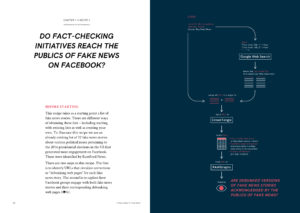 Russian agents created 129 events on the social media network during the 2016 U.S. election campaign, according to Facebook’s testimony to Congress, shedding more light on Russia’s purported disinformation drive aimed at voters, Reuters reports: –
Russian agents created 129 events on the social media network during the 2016 U.S. election campaign, according to Facebook’s testimony to Congress, shedding more light on Russia’s purported disinformation drive aimed at voters, Reuters reports: –
Facebook, in a written statement to U.S. lawmakers released on Thursday and dated Jan. 8, said that 338,300 different Facebook accounts viewed the events and that 62,500 marked that they would attend. The company said it did not have data about which of the events took place.
Facebook, the world’s largest social media network, said in September only that Russians had created “several promoted events.”…Facebook has previously said some 126 million Americans may have seen Russian-backed political content on Facebook over a two-year period, and that 16 million may have been exposed to Russian information on Instagram.
 Like Twitter, Facebook is doing little to address problematic narratives that may not be patently false, argues Nina Jankowicz (@wiczipedia), a writer and analyst focusing on disinformation. After all, most of the infamous Russian election ads purchased on Facebook in 2016 were not “fake.” They were highly inflammatory messages aimed at the specific populations with whom they would most resonate, she writes for The New York Times:
Like Twitter, Facebook is doing little to address problematic narratives that may not be patently false, argues Nina Jankowicz (@wiczipedia), a writer and analyst focusing on disinformation. After all, most of the infamous Russian election ads purchased on Facebook in 2016 were not “fake.” They were highly inflammatory messages aimed at the specific populations with whom they would most resonate, she writes for The New York Times:
By narrowly focusing on eliminating Russian accounts and posts, relying on users to determine which content is trustworthy and blindly believing that fact-checking will improve the rapidly worsening level of civil discourse in America, social media companies are relinquishing their role as today’s most powerful gatekeepers of information. If these tech giants want to contribute to democracy instead of help to tear it down, they need to recognize that homegrown threats to civil discourse exist among the very users to whom they are bequeathing more responsibility.
 There are two components to Russia’s strategy, according to Peter Singer, a senior fellow at the New America think tank and author of “Cybersecurity and Cyberwar: What Everyone Needs to Know.”
There are two components to Russia’s strategy, according to Peter Singer, a senior fellow at the New America think tank and author of “Cybersecurity and Cyberwar: What Everyone Needs to Know.”
- First, there’s the hacking and stealing of information…There have even been recent attempts to breach the U.S. Senate’s email system.
- But the second part of Russia’s strategy is arguably even more important: influence operations. Singer said that this isn’t about hacking into someone’s account — it’s about hacking the conversation.
An example of these influence operations would be the thousands of Facebook ads purchased by Russian individuals or organizations, which attempted to sow division during the 2016 election….Singer believes that Russia thinks differently about propaganda and disinformation than America does, WGBH reports.
“When we think about propaganda, it’s: ‘I’m going to try and message so that you love me,'” Singer said. “Whereas going back to the Soviet Union days … it’s not about making you like them or even like certain types of candidates. Instead, it’s about trying to cause distrust, disarray, to divide the opposition.”
 Facebook’s Vice President Elliot Schrage has admitted that the company needs to improve. But proposed changes don’t go far enough, according to the New Republic’s Alex Shephard:
Facebook’s Vice President Elliot Schrage has admitted that the company needs to improve. But proposed changes don’t go far enough, according to the New Republic’s Alex Shephard:
Case in point: Schrage’s reluctance to assemble experts to monitor content on Facebook. In fact, putting together an independent panel to address the company’s growing disinformation problem would be a strong step. Twitter, which has taken its fake news problem much more seriously, has embarked on a similar strategy with promising results. Tellingly, Schrage is arguing that it wouldn’t work for Facebook because it would “invite criticism”—because it would, in other words, create a PR headache for the company.
 The power of social media today mirrors the power of companies during the Industrial Revolution — railroads, energy and water companies that we know today as “utilities” deemed so vital that they need to be regulated, notes Toomas Hendrik Ilves (right), President of Estonia from 2006 to 2016 and now a distinguished visiting fellow at Stanford University’s Hoover Institution:
The power of social media today mirrors the power of companies during the Industrial Revolution — railroads, energy and water companies that we know today as “utilities” deemed so vital that they need to be regulated, notes Toomas Hendrik Ilves (right), President of Estonia from 2006 to 2016 and now a distinguished visiting fellow at Stanford University’s Hoover Institution:
This may be the direction liberal democratic governments take with social media companies — deeming them too big, too powerful, potentially too threatening for politicians to tolerate. Not only center-left politicians in “statist” Europe but right-wing political figures such as Steve Bannon speak of regulating social media as utilities. This already has become a major issue for Facebook, Twitter and other media in the liberal world. Elsewhere, where there is no electoral democracy, there is no debate.
 The complexity of international law makes it one of the easiest sources to create pro-Kremlin disinformation. So this week Russia’s foreign minister was reported stating that Russia has not violated the Budapest Memorandum, insisting that Russia has neither used nor threatened to use nuclear weapons against Ukraine, notes the EU East StratCom Task Force’s Disinformation Review:
The complexity of international law makes it one of the easiest sources to create pro-Kremlin disinformation. So this week Russia’s foreign minister was reported stating that Russia has not violated the Budapest Memorandum, insisting that Russia has neither used nor threatened to use nuclear weapons against Ukraine, notes the EU East StratCom Task Force’s Disinformation Review:
Sounds convincing? Actually, the Budapest Memorandum states that “The United States of America, the Russian Federation, and the United Kingdom of Great Britain and Northern Ireland, reaffirm their commitment to Ukraine, in accordance with the principles of the CSCE [Commission on Security and Cooperation in Europe] Final Act, to respect the Independence and Sovereignty and the existing borders of Ukraine” – which Russia clearly has violated by annexation of Crimea.







